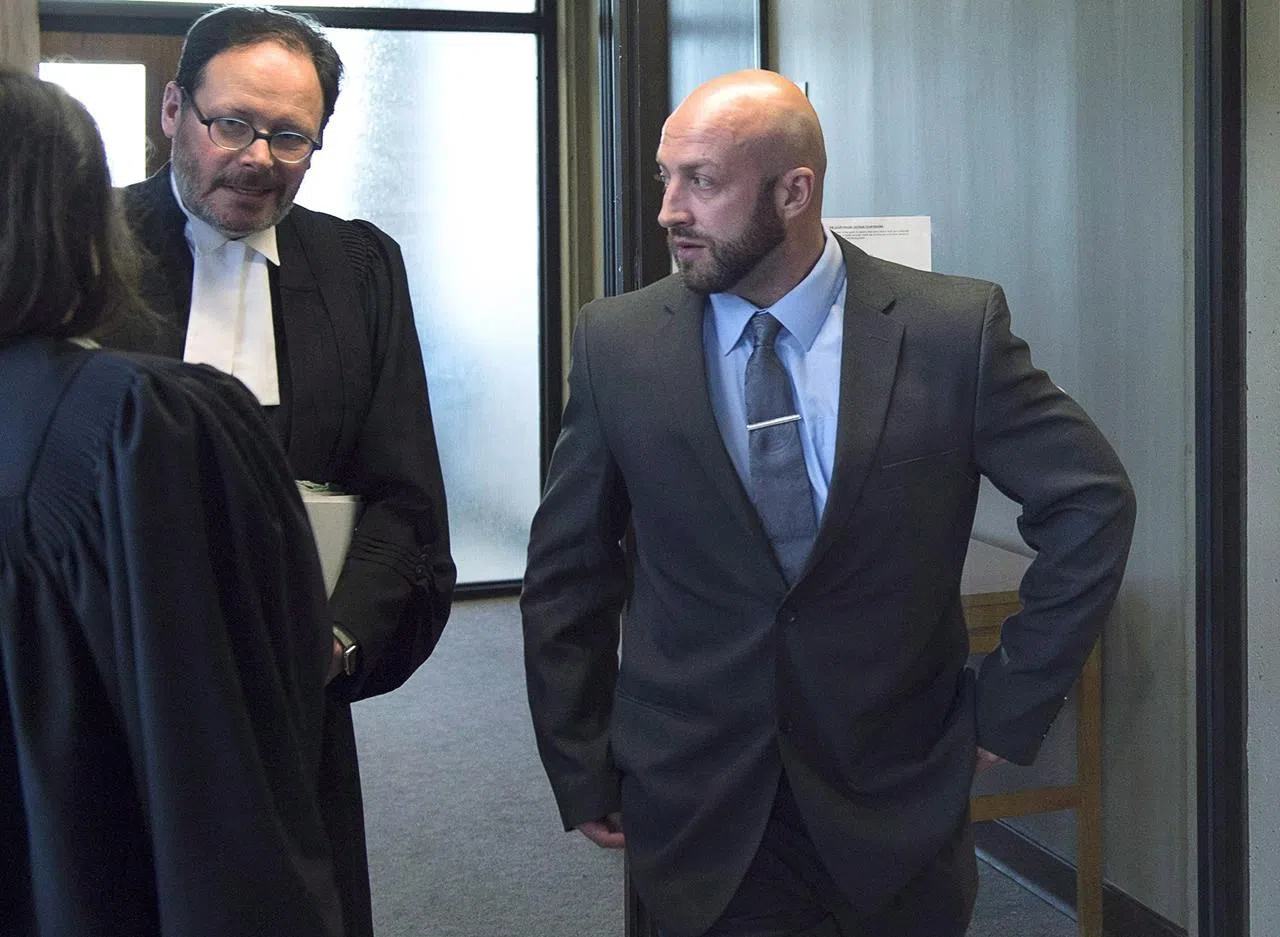
Nova Scotia judge to deliver verdict in British sailor’s gang rape case
HALIFAX — A decision is expected Friday in the high-profile case of a British sailor accused in a gang rape at a Halifax-area military base, even as the Crown mulls whether to reinstitute a sexual assault charge against a second member of the Royal Navy.
Darren Smalley, who is in his late 30s, is charged with sexual assault causing bodily harm and participating in a sexual assault involving one or more people in barracks at 12 Wing Shearwater on April 10, 2015.
The complainant testified at his trial last fall that she went to sleep next to a sailor, and later awoke face down and naked as at least three men sexually assaulted her.
Smalley was one of four British sailors originally charged.



